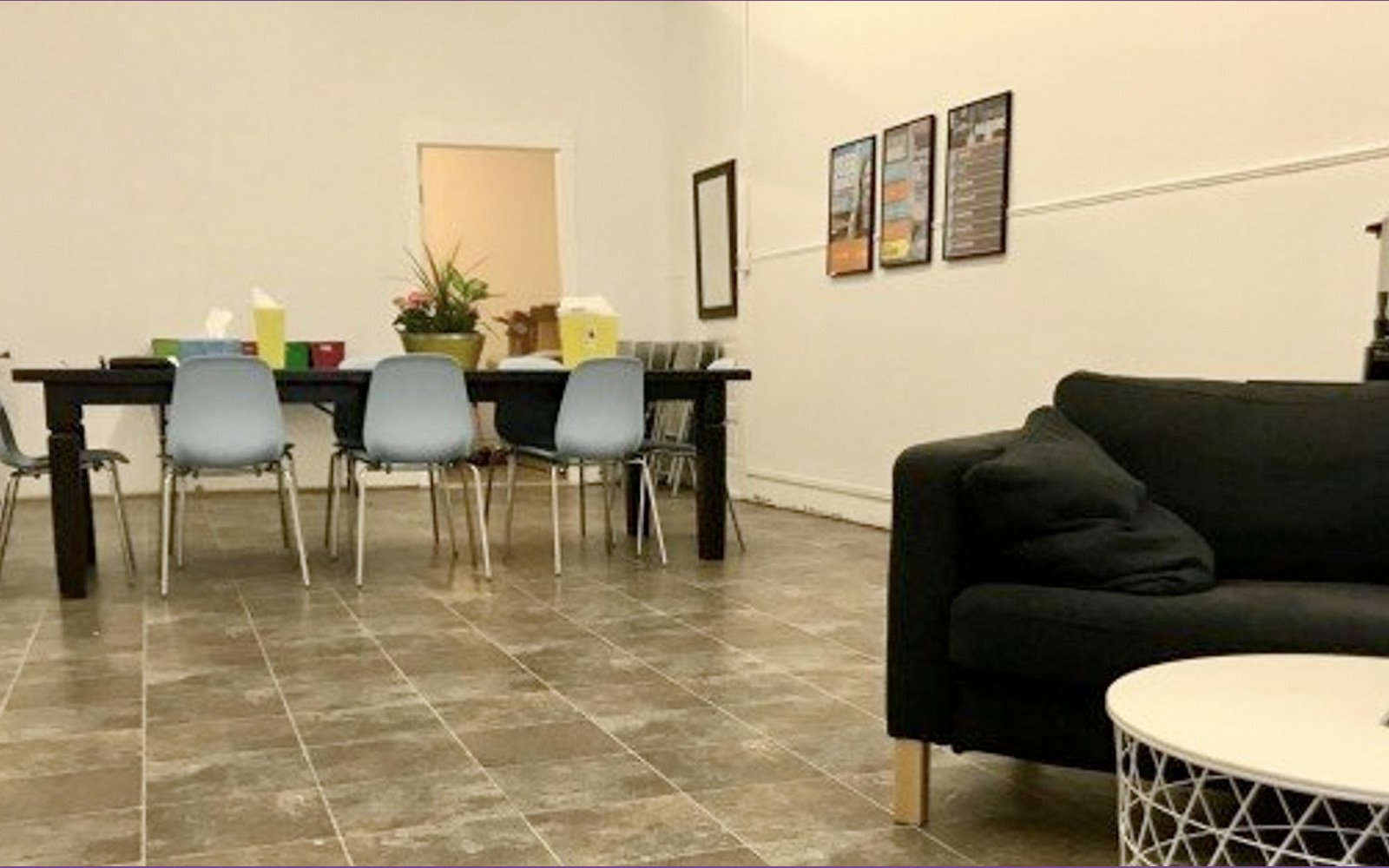Can you please introduce yourself and explain the work of SisterSpace?
My name is Janice Abbott and I am the CEO of the Atira Group of Women Serving Agencies, the parent entity of which is Atira Women’s Resource Society. I have been the CEO for 29 years as of September 28th, 2021. More about me here: https://atira.bc.ca/who-we-are/our-people/leadership/
SisterSpace is a women-only, inclusive of transgender women and transfemme individuals, shared using room (safe injection site). It is public so women can use the space whether or not they live in the building where SisterSpace is located. Our goal is to provide a safe and welcoming space that reflects and honours women, is de-medicalized (no stainless steel booths or maximum lengths of stay) and encourages connection and mutual support amongst women using the space; mutual support that extends outside of SisterSpace.
Why did you choose to work in this field?
I started using substances at age 13 and struggled with problematic substance use until I got pregnant in my early 20s. While I was a polysubstance user, alcohol was what almost always triggered my use of other substances. I stopped drinking for about three years and when I started again I made some choices about what I drink and how often, in order to prevent a relapse back into problematic use. Abstinence was not an option for me and I understand why and how it is not an option for others, especially women who are coping with violence and trauma, and I am committed to creating both emotionally and physically safe places and spaces for women to use.
Why was it important and necessary to set up a women-only overdose prevention centre?
For years women in the community had been sharing with us how for them, the only safe injection site in the City (and country) was not safe and or comfortable for them – for some women it was never safe or comfortable and for others it was intermittently unsafe and uncomfortable. This was not about the operators necessarily, but about who else was using the site; often men who had caused them harm. Some also expressed that it was too perfunctory and or reminded them of being in hospital where many women experience ongoing stigma, racism, misogyny. Women who were pregnant were especially resistant to being seen at the site.
What were some key factors involved in establishing SisterSpace?
Well, first it took a lot of advocacy (years), and failed drug policy that resulted in an opioid poisoning epidemic (in other words, a crisis). After that it was finding the right location; a location that felt safe for women (SisterSpace is in a commercial unit of a women-only housing building, across the street from a women-only housing building, next door to a women’s shelter, around the corner from women’s housing and from a drop-in centre for women involved in the sex trade): setting up the space so that it looked less like a medical centre and more like the open space of a home (with a kitchen table, lounge chairs, murals, etc.); and employing peers and other women who had lived expertise. We also commissioned a developmental evaluation, which allowed us to get real-time feedback from women and make adjustments based on same.
What kind of feedback are you getting from clients of the service?
Feedback is overwhelmingly positive. In a recent utilization-focused evaluation report – https://atira.bc.ca/wp-content/uploads/2020-21-PHAC-SisterSpace-Evaluation-Report-FINAL.pdf – women told us overwhelmingly that they had benefited from the space and programming at SisterSpace. They validated our decision to set it up as a living room/kitchen and to not limit their time in the space. One of the most important findings to me was that 85% of the women, when asked, said they had friends at SisterSpace. 89 women participated in the evaluation surveys, which is also telling in that in this neighbourhood, it is hard to get much participation in evaluations/research/etc. More reports/information here: https://atira.bc.ca/what-we-do/program/sisterspace/
How do you address any concerns from surrounding businesses and residents located near the centre?
We chose a location where we knew this would not be an issue; and it hasn’t been.
Do you have any tips or suggestions for advocates wishing to establish a women who use drugs only service in their locale? And any tips specifically for establishing a women’s medically supervised injecting centre?
Listen to women. Build space in a location that is comfortable/familiar to them. Resist medicalizing the space. The health care system has not typically been friendly to women who use substances, especially if they are racialized, poor, pregnant, involved in sex work. Employ peer workers; women who reflect the women being served. Be radical (e.g. we were told we could not assist women using, but peer workers do). Don’t rush women out. Building relationships with each other takes time and is critical to women’s wellbeing. If offering additional services, have them delivered by an outside organization on an in-reach basis and never pressure women to access services they don’t want or are not ready for. Resist seeing abstinence as the golden goal (there is a lot of pressure to do this). For women who have experienced a life time of violence/trauma, their relationship with substances is what keeps them going. Our goal is to ensure they have access to health care, good food, safe drugs, help when they need it, that they feel valued and valuable; and most of all to keep them alive if and until they are ready to make other choices.
Note in this interview Janice discusses SisterSpace. Atira expanded/added an additional service, SisterSquare, in May of 2020, to ensure they could continue to offer support to women during the pandemic (given they had to limit the number of women inside SisterSpace). See https://atira.bc.ca/sistersquare-one-year/.
It is interesting that in this outdoor pop-up SisterSquare space they are seeing that more than 2/3 of women who use the service smoke, a reality they can’t accommodate at SisterSpace because there isn’t adequate ventilation. Janice mentions several written reports about SisterSpace. Note that the Centre of Excellence had the opportunity to create a video with Janice and others who work at SisterSpace which gives a view into the space and well captures the important, women-centred, trauma and violence informed, harm reduction oriented work they do. See https://www.youtube.com/
watch?v=UU-QwGwUJmg


